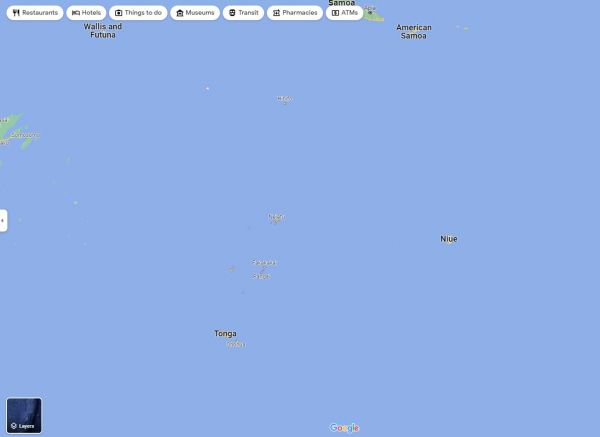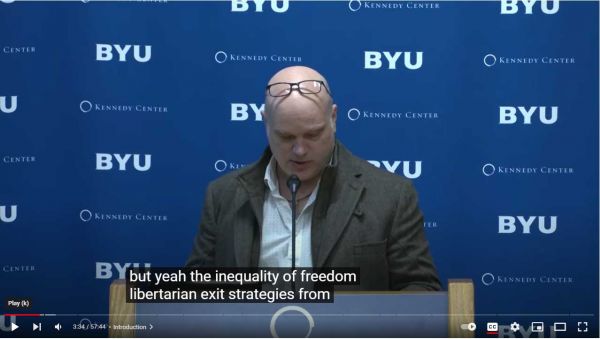A Nation on Paper
I saw this article in the Frankfurter Allgemeine newspaper during my visit to Germany in October. "Die Möglichkeiten einer Insel" (The opportunities of an island-nation) concerns the efforts of some Bohemian Americans in 1972 to create their own nation in the remote vastness of the South Pacific. They chose a tiny island belonging to the nation of Tonga, one of approximately 171 islands that Tonga claims. Perhaps 45 are inhabited. Many of the islands are hardly more than coral-reefs that remain submerged for part of the year. The Americans declared the independent nation of Minerva--basically a nation on paper—just to show that it can be done.
The American entrepreneur Michael Oliver undertook this effort and went as far as writing its constitution. He and his cronies elected an executive-type Morris C. Davis as Minerva's first president. As their plan took shape, they added tons of rocks and sand to keep the island of Minerva above sea-level for the entire year, giving Minerva eligibility as a bona-fide nation.
But the Republic of Minerva never existed as more than a nation on paper; and in the end, the King of Tonga intervened, claimed Minerva as a member island of Tonga, and put an end to Oliver's dream of a new nation—which never existed except as a nation on paper, anyway. But Oliver showed the potential of nationhood as a practical concept, and he showed it in the best possible way. He wrote its constitution.
The article explains that World War II defined Oliver—as a Lithuanian Jew who had to flee Dachau Concentration Camp. He never again wanted to live in a nation defined by "Totalitarismus" and by "Massenpolitik." Odd to think that he would equate Massenpolitik, i.e. Government by the Masses, with Totalitarianism. He's been there and done that. We should accept the lesson he learned the hard way. In a civilized nation, a constitution defines its legal culture. It enables the citizen's freedom to create wealth, through businesses, private institutions, and really any private spaces, The constitution protects individual freedom from Massenpolitik.
He does not say that everyone has to accept this kind of a nation, where a citizen can enjoy the fruits of his efforts. He only says it is the sort of nation he wants to inhabit: Run your fastest, and do your damndest to succeed! Work hard and reap the fruits of your labors! No one who hates that system should have to stay there—only those who feel they can gain some benefit from a freedom-loving, strivers' kind of society.
Oliver's Republic of Minerva should give like-minded Americans their marching orders—to create a nation that subordinates itself to a constitution. The constitution should define the citizenry and its relationship to the government, and that the nation should be a nation of laws and not of men, as our Founding Father John Adams wished; and thanks to Adams and the other Founders, we already have a constitution—the Constitution, signed and dated 17 September 1787.
As I read into the history of Michael Oliver and the Republic of Minerva, I came across Professor Raymond Craib of Cornell University who laments the subordination of "eqality" to freedom and the "libertarian exit strategies" proposed by Oliver.
Craib remarks somewhat disengenously that "Americans fought over the meaning of democracy, equality, and freedom." He really meant that democratic-socialists like Sanders battled Republicans and moderate Democrats on this issue. The Republicans certainly have no problem with the three terms. They want a nation that allows freedom in the marketplace, competition, and plenty of capital to enable markets to innovate, improve, and expand. I would say that Craib wants to undermine personal liberty as a nation's working assumption. If we want a freedom-loving nation, we certainly don't want people like him on board. Is Craib a Marxist? Only Marx has gone on record as opposing "individual freedom." Republicans want to protect free market and capital. The curious, disturbing thing is that Craib himself probably has a securities' portfolio, a second home, a sailboat, and all the other fruits of a hard-working man's labors.
I credit Craib with understanding the significance of Michael Oliver's paper-nation—that he wanted to separate his nation from the Massenpolitik of equality—that presses everyone down artificially, at the cost of individual freedom. Craib writes, "Some who prioritized freedom experimented with exiting the nation-state system to establish private, sovereign territories."
Again, Craib turns a disengenous blind-eye to Oliver's real intention—to create a society governed by a constitution that enabled freedom-lovers a free-rein to create institutions and wealth. We only need to turn the Oliverian paper-nation into a real one, using a division of the United States to give us the nation that we want.




